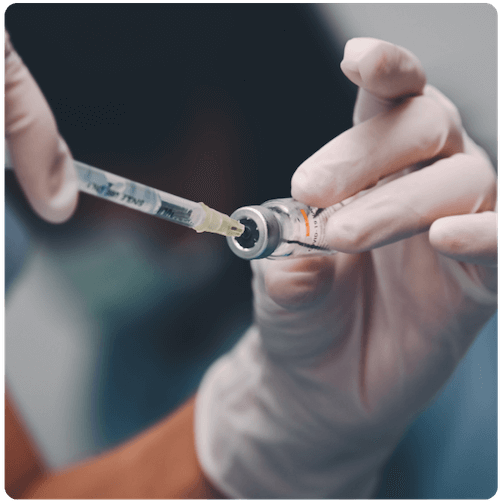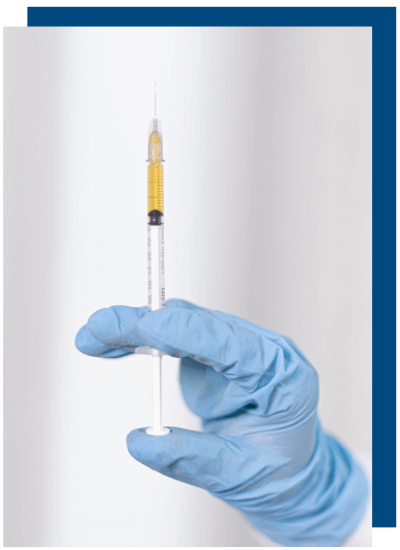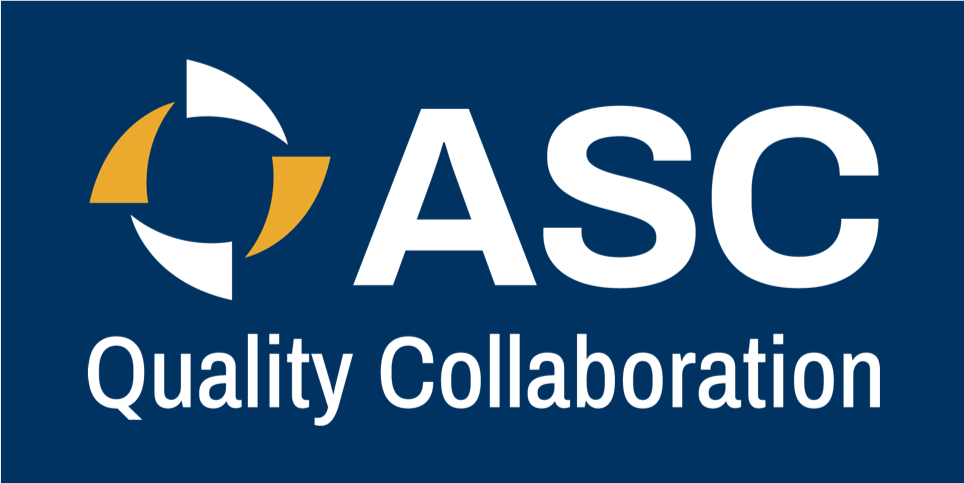Safe Injection Practices Toolkit
The resources in this toolkit may only be used for internal improvement and education efforts. They may not be used for commercial purposes.

Safe injection practices are crucial to basic levels of patient safety and provider protection. Hepatitis C virus, hepatitis B virus, and HIV can be spread from patient to patient when safe injection practices are not used.
The ASC Quality Collaboration has assembled a variety of resources and information that may be used to supplement your current processes to enhance existing injection practices.
The Safe Injection Practices contains both essential resources and a broader array of materials, including:
Assessment Tools
- Safe Injection Practices: What CMS Surveyors Are Looking For: Perform a self-assessment using the same tool CMS surveyors use when evaluating injection practices in the ASC setting.
- Sample Safe Injection Practices Survey (WDHS): This sample assessment form from the Wisconsin Department of Health Services (WDHS) may be used to observe clinical staff injection practices.
- Injection Safety Checklist (CDC): This sample checklist can be used to systematically assess adherence to safe injection practices. It should be conducted by direct observation of healthcare personnel during the performance of their duties.
Implementation Aids
- Injection Safety: What Every Healthcare Provider Needs to Know (SIPC): This brochure from the Safe Injection Practices Coalition (SIPC) summarizes essential aspects of safe injection practices.
- Injection Safety: What Every Healthcare Provider Needs to Know (SIPC): This pocket card from the Safe Injection Practices Coalition (SIPC) succinctly presents the CDC’s injection safety guidelines.
- Leadership Letter Template: This sample letter from clinical leaders in the ASC may be used to share plans for a safe injection practices awareness initiative with other staff in the center. The template should be adapted to fit the unique circumstances of each center.
- Injection Practices Policy and Procedure Template: This sample injection practices policy and procedure is based on the Centers for Disease Control and Prevention (CDC) guidelines. It should be adapted as needed for use in each facility.
Training Materials
- A “Never” Event: Unsafe Injection Practices (CDC): This presentation from the Centers for Disease Control and Prevention (CDC) regarding unsafe injection practices was delivered during a conference call in March 2008. Access the PowerPoint presentation, audio file and transcript below.
- Check Your Steps! Make Every Injection Safe – This video by the CDC covers the differences between single-dose and multi-dose vials and is part of the One & Only Campaign.
- Safe Injection Practices – How To Do It Right – This video by the CDC covers safe injection practices and is part of the One and Only Campaign.
- Safe Injection Practices – A video for Healthcare Providers – The Safe Infection Practices Coalition (SIPC) video is a 10-minute lesson on safe injection practices.
- FAQs for Providers (CDC): These “frequently asked questions” — and answers — from the Centers for Disease Control and Prevention (CDC) focus on injection procedures. Please note that there are multiple web pages at this CDC site, each addressing FAQs regarding different aspects of safe injection practices.
- Safe Injection Practices – Train the Trainer Toolkit – This safe injections toolkit is offered by the California Department of Public Health

Monitoring Tools
- Sample Safe Injection Practices Survey (WDHS): This sample form from the Wisconsin Department of Health Services (WDHS) may be used to observe the injection practices of clinical staff.
- Injection Safety Checklist (SIPC): This checklist from the Safe Injection Practices Coalition (SIPC) may be used to assess adherence to safe injection practices.
Workplace Reminders
- One and Only Campaign Posters (SIPC): This poster from the Safe Injection Practices Coalition are designed to reinforce single use of needles and syringes.
- Rx for Safe Injections in Healthcare
Guidelines from Leading Authorities
- Preventing Transmission of Infectious Agents in Healthcare Settings (CDC): This is the 2023 update to the 2007 guideline was developed by the Centers for Disease Control and Prevention (CDC) and the Healthcare Infection Control Practices Advisory Committee (HICPAC). For information specific to safe injections, please see pages 70-71.
- Safe Injection Practices to Prevent Transmission of Infections to Patients (CDC): This Centers for Disease Control and Prevention (CDC) excerpt from its comprehensive guideline for Preventing Transmission of Infectious Agents in Healthcare Settings focuses strictly on safe injection practices.
- Safe Injection, Infusion and Medication Vial Practices in Healthcare (APIC): This position paper from the Association for Professionals in Infection Control and Epidemiology (APIC) promoting proper infection prevention and aseptic technique during the handling and preparation of parenteral medications, administration of injections, and procurement and sampling of blood.
- Multi-dose Vials (TJC): The Joint Commission (TJC) has published expectations for managing multi-dose vials of sterile injectable medication.
Resources Cited
The materials presented here include publicly available resources from the following organizations:
- Centers for Disease Control and Prevention (CDC)
- Association for Professionals in Infection Control and Epidemiology (APIC)
- Safe Injection Practices Coalition (SIPC)
- World Health Organization (WHO)
- Wisconsin Department of Health Services (WDHS)
- The Joint Commission (TJC)
- California Department of Public Health (CDPH)
Comments and other feedback may be directed to Nina Goins, Executive Director, ASC Quality Collaboration.
Contact us today to learn more about how we can support you.
ASC Quality Collaboration
The only organization exclusively dedicated to advancing patient safety and quality of care delivery in ambulatory surgery centers.
